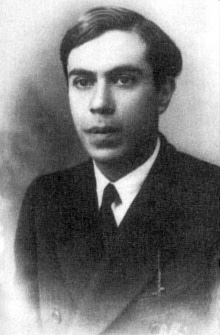
In late March 1938, Antonio Carrelli received a letter and a telegram in short succession. Both were from Ettore Majorana, the brilliant Italian physicist who had recently joined the faculty of the Naples Physics Institute, where Carrelli was director.
The letter read, “Dear Carrelli, I made a decision that has become unavoidable. There isn’t a bit of selfishness in it, but I realize what trouble my sudden disappearance will cause you and the students. For this as well, I beg your forgiveness, but especially for betraying the trust, the sincere friendship and the sympathy you gave me over the past months. I ask you to remind me to all those I learned to know and appreciate in your Institute, especially Sciuti: I will keep a fond memory of them all at least until 11 pm tonight, possibly later too. E. Majorana.”
The telegram had been sent immediately afterward: “Dear Carrelli, I hope you got my telegram and my letter at the same time. The sea rejected me and I’ll be back tomorrow at the Hotel Bologna traveling perhaps with this letter. However, I have the intention of giving up teaching. Don’t think I’m like an Ibsen heroine, because the case is different. I’m at your disposal for further details. E. Majorana.”
On investigation it was found that Majorana had withdrawn all the money from his bank account and taken the night boat from Naples to Palermo on March 23. He had sent both messages from Palermo and then boarded the steamer to return to Naples on the night of March 25.
But there the trail ended. On the return journey Majorana had shared a compartment with a local university professor, but beyond this point no trace of him could be found. His family offered a reward of 30,000 lire for his whereabouts, and Enrico Fermi implored Mussolini for aid, citing the “deep brilliance” of Majorana’s physics, which he compared to those of Galileo and Newton. A police search found no body but offered no clues.
What happened to him? Theories abound: The most natural explanation, that he committed suicide, is discounted by both his family and the bishop of Trapani, citing his strong Catholic faith. (Also, it doesn’t explain the withdrawal of the money.) Other theories contend that he was murdered, that he fled physics because he foresaw the advent of nuclear weapons, that he had a spiritual crisis and joined a monastery, that he became a beggar, and that he moved to South America. No one knows.
(Barry R. Holstein, “The Mysterious Disappearance of Ettore Majorana,” from the Carolina International Symposium on Neutrino Physics, 2008.)
